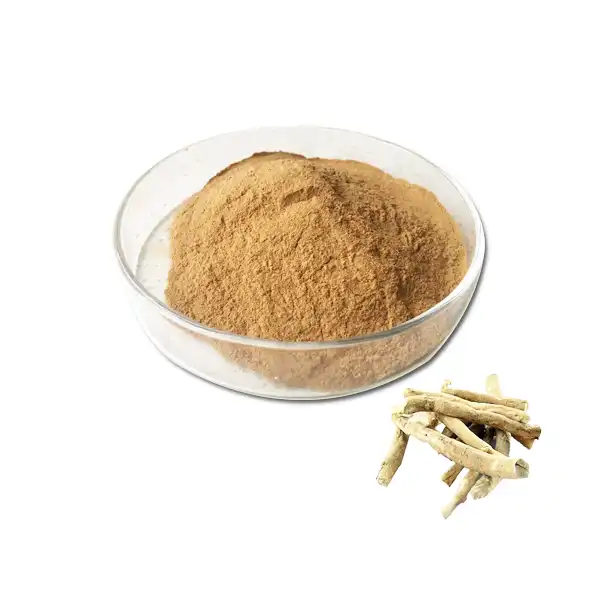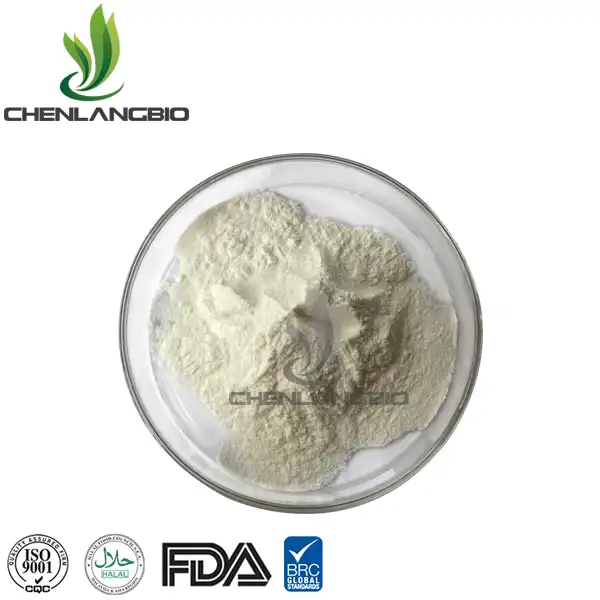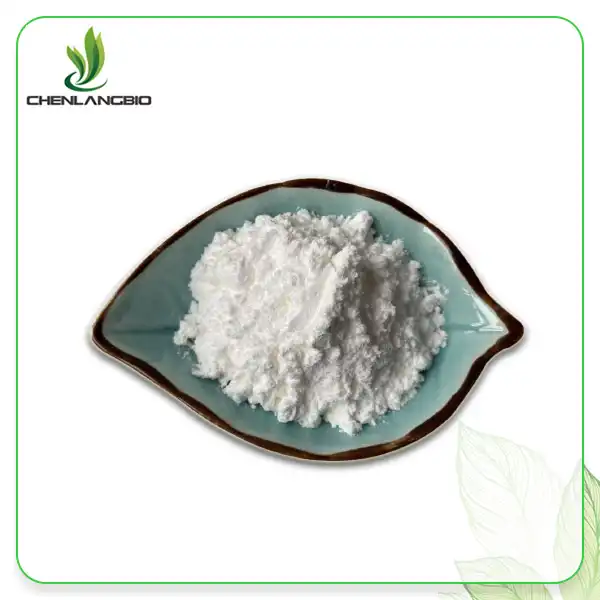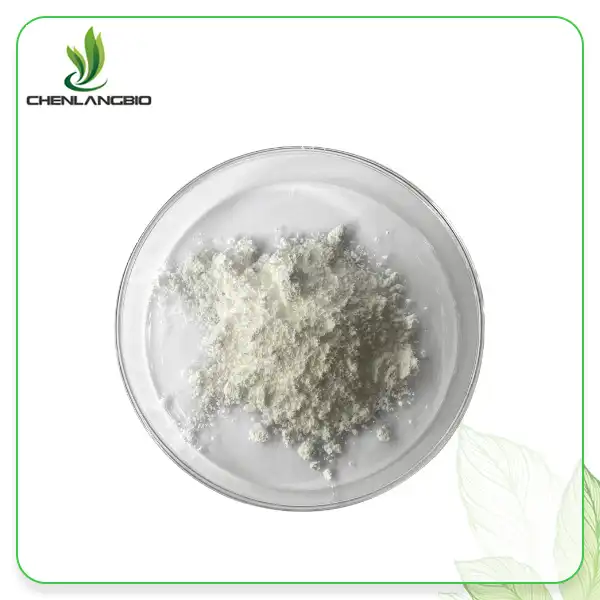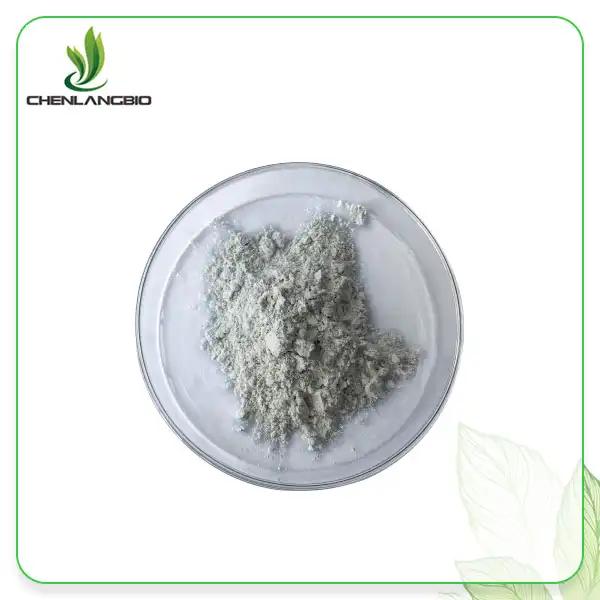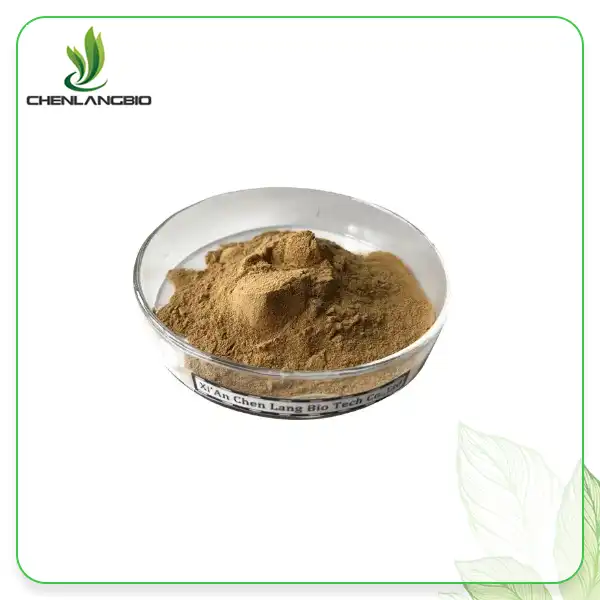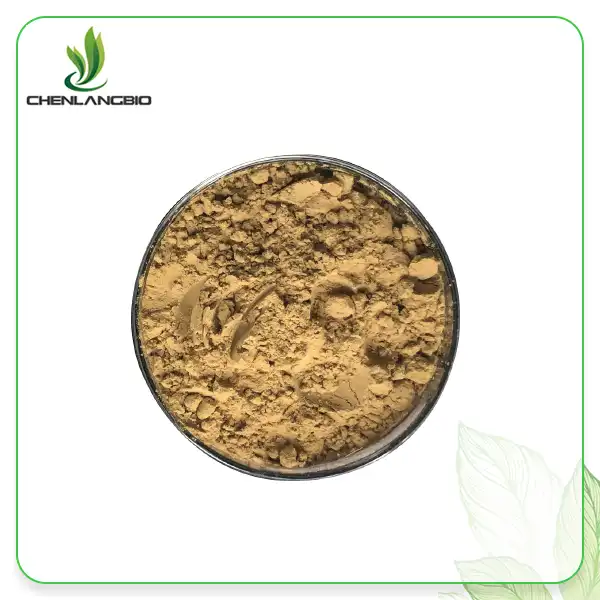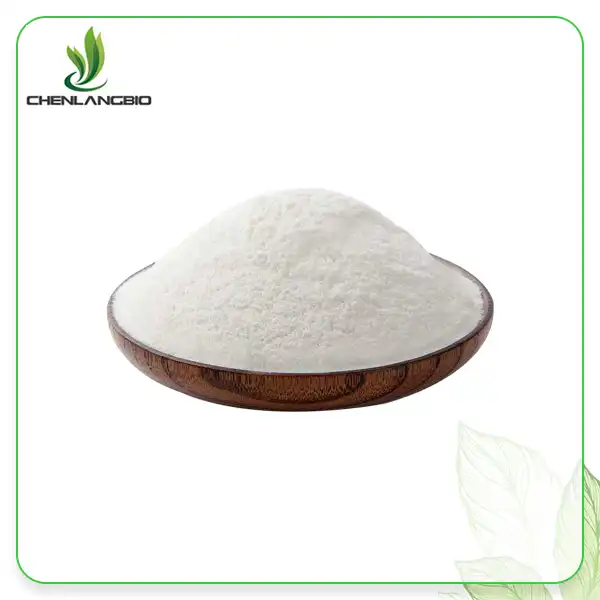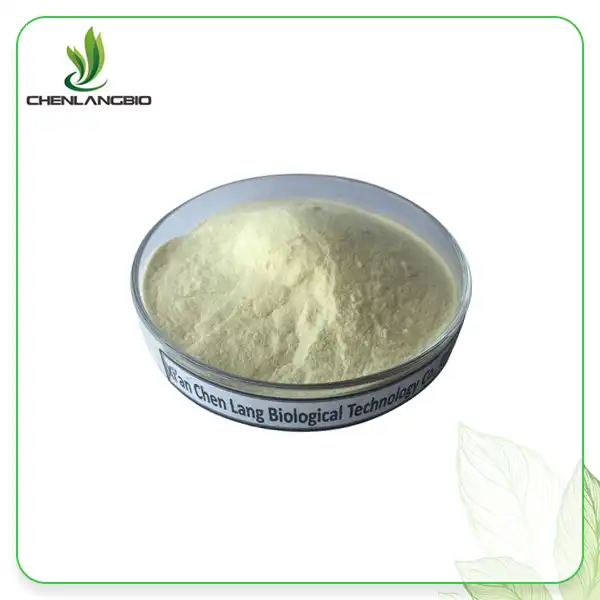How Does Ashwagandha Extract Help with Stress and Anxiety?
2025-05-26 09:29:32
In today's fast-paced world, stress and anxiety have become constant companions for many people. Amid the growing interest in natural remedies, ashwagandha extract has emerged as a powerful adaptogen with remarkable stress-relieving properties. Known scientifically as Withania somnifera and often called "Indian ginseng," this ancient medicinal herb has been used for over 3,000 years in Ayurvedic medicine to promote physical and mental health. Modern research has validated its traditional uses, particularly its ability to mitigate stress responses, reduce anxiety symptoms, and restore balance to the body's stress management systems.
The Science Behind Ashwagandha's Stress-Relieving Properties
Ashwagandha Extract works through multiple pathways to combat stress and anxiety, making it one of nature's most effective adaptogens. Its complex mechanism of action involves regulation of neurotransmitters, modulation of stress hormones, and enhancement of cellular resilience.
Cortisol Regulation and HPA Axis Modulation
Ashwagandha Extract contains bioactive compounds called withanolides that directly influence the body's stress response system. These compounds have been shown to normalize cortisol levels, often referred to as the "stress hormone," which tends to become elevated during chronic stress conditions. Studies have demonstrated that regular consumption of Ashwagandha Extract significantly reduces serum cortisol levels, sometimes by as much as 30% compared to baseline measurements. This hormone-balancing effect occurs primarily through the regulation of the hypothalamic-pituitary-adrenal (HPA) axis, which is the body's central stress response system. By tempering the HPA axis activity, Ashwagandha Extract helps prevent the excessive release of stress hormones that can lead to anxiety symptoms, sleep disturbances, and various other stress-related health issues. The adaptive properties of withanolides allow the body to respond more appropriately to stressors without triggering an overwhelming hormonal cascade, essentially teaching the body to remain calm under pressure. This cortisol-modulating effect is particularly beneficial for individuals who experience stress-induced symptoms like fatigue, irritability, and concentration difficulties.
Neurotransmitter Balance and GABA Activity
The therapeutic effects of ashwagandha extract extend to neurotransmitter systems in the brain, particularly those involving gamma-aminobutyric acid (GABA). GABA is an inhibitory neurotransmitter that reduces neuronal excitability, essentially acting as the brain's natural calming agent. Research indicates that withanolides in Ashwagandha Extract mimic the activity of GABA, binding to GABA receptors and enhancing their function. This GABA-mimetic action produces anxiolytic (anxiety-reducing) effects similar to certain pharmaceutical medications but without the side effects or dependency issues. Additionally, Ashwagandha Extract helps optimize levels of other neurotransmitters including serotonin and dopamine, which play crucial roles in mood regulation and emotional well-being. By promoting balanced neurotransmitter activity, Ashwagandha Extract creates a state of mental calmness while simultaneously improving cognitive function, helping individuals maintain focus and mental clarity even during stressful periods. This holistic effect on brain chemistry makes it particularly valuable for addressing both the psychological and cognitive aspects of stress and anxiety.
Antioxidant Protection and Neuroprotection
Chronic stress creates an environment of oxidative stress within the body, producing excessive free radicals that can damage neurons and impair brain function. Ashwagandha Extract contains powerful antioxidants that neutralize these harmful free radicals and protect neural tissues from oxidative damage. The extract's withanolides, alkaloids, and flavonoids work synergistically to enhance the body's endogenous antioxidant defense systems, including superoxide dismutase (SOD), catalase, and glutathione peroxidase. This neuroprotective quality is especially important because prolonged stress can lead to structural changes in the brain, particularly in areas involved in emotional regulation and memory. Clinical research has shown that Ashwagandha Extract helps preserve these critical brain structures and supports neuroplasticity, the brain's ability to form new neural connections. Furthermore, the extract's antioxidant properties extend beyond the brain to protect other body systems from stress-induced damage, including the cardiovascular and immune systems. By providing comprehensive cellular protection, Ashwagandha Extract addresses the physical manifestations of anxiety and stress that often accompany psychological symptoms.
Clinical Evidence Supporting Ashwagandha for Anxiety Management
The traditional use of Ashwagandha for stress relief has been substantially validated by modern scientific research, with numerous clinical studies confirming its effectiveness for anxiety disorders and stress-related conditions.
Randomized Controlled Trials on Anxiety Symptoms
Multiple randomized controlled trials have demonstrated the efficacy of Ashwagandha Extract in reducing anxiety symptoms. In a landmark double-blind, placebo-controlled study, participants receiving Ashwagandha Extract experienced a significant reduction in anxiety scores compared to the placebo group, with improvements manifesting after just six weeks of supplementation. The standardized anxiety assessment tools utilized in these studies, including the Hamilton Anxiety Rating Scale (HAM-A) and the Depression Anxiety Stress Scale (DASS-21), showed consistent improvements across various anxiety parameters. Particularly noteworthy is that Ashwagandha Extract appears effective for different types of anxiety disorders, including generalized anxiety disorder, social anxiety, and stress-induced anxiety. A comprehensive meta-analysis of clinical trials found that Ashwagandha Extract supplementation resulted in an average 56.5% reduction in perceived anxiety levels across diverse population groups. Additionally, these studies report minimal side effects associated with Ashwagandha Extract, making it a viable alternative for individuals who experience adverse reactions to conventional anxiety medications. The sustained benefits observed in longer-term studies suggest that Ashwagandha Extract may offer cumulative improvements in anxiety management, with effects becoming more pronounced with consistent use over periods of 8-12 weeks, indicating its potential as both an acute anxiety reliever and a long-term anxiety management solution.
Physiological Markers of Stress Reduction
Beyond subjective measures of anxiety, clinical research has documented ashwagandha extract's impact on physiological markers of stress. Studies measuring biological indicators of stress response have found that regular supplementation with Ashwagandha Extract leads to significant reductions in heart rate variability disruptions, blood pressure elevations, and respiratory pattern changes typically associated with chronic stress conditions. Blood analysis from these studies shows decreased levels of C-reactive protein and other inflammatory markers that typically rise during prolonged stress states. This anti-inflammatory action is attributable to the extract's withanolides, which inhibit stress-induced activation of NF-κB pathways and subsequent cytokine production. Furthermore, electroencephalogram (EEG) studies have recorded improved alpha wave activity—brain waves associated with relaxation and calmness—in subjects taking Ashwagandha Extract regularly. Sleep quality, another physiological indicator of stress levels, also improves significantly with Ashwagandha Extract supplementation, with participants reporting reduced sleep latency and fewer mid-sleep awakenings. These objective physiological improvements correspond closely with participants' subjective reports of reduced anxiety and stress, providing strong evidence that Ashwagandha Extract's effects extend beyond placebo responses to create meaningful biological changes in stress regulation systems.
Comparative Effectiveness Studies
Research comparing Ashwagandha Extract to conventional anxiety treatments has yielded promising results regarding its therapeutic potential. Several comparative studies have found that standardized Ashwagandha Extract preparations (typically containing 2.5-5% withanolides) produce anxiolytic effects comparable to commonly prescribed anxiolytic medications but with fewer side effects and no risk of dependency. In one notable study, Ashwagandha Extract was compared to benzodiazepines for the treatment of generalized anxiety disorder, with results showing similar efficacy in symptom reduction but significantly fewer adverse effects in the Ashwagandha group. Additionally, integrative approaches combining Ashwagandha Extract with conventional treatments have shown enhanced outcomes compared to standard treatment alone, suggesting potential synergistic effects. For stress-related sleep disorders, comparative studies indicate that Ashwagandha Extract improves sleep quality and duration similar to certain sleep medications but without morning grogginess or other common side effects. These comparative effectiveness studies provide valuable context for healthcare providers considering Ashwagandha Extract as an alternative or complementary approach for patients with anxiety disorders. The evidence suggests that Ashwagandha Extract may be particularly beneficial for individuals seeking natural alternatives to conventional anxiety medications or those who have experienced side effects with standard pharmacological treatments.
Practical Applications and Optimal Usage
Understanding how to properly incorporate Ashwagandha Extract into a comprehensive stress management approach can significantly enhance its effectiveness for anxiety relief.
Dosage Guidelines and Administration Methods
Determining the optimal dosage of Ashwagandha Extract depends on several factors including the concentration of withanolides, the specific health concerns being addressed, and individual biochemistry. Clinical studies showing significant anxiety reduction typically use standardized extracts containing 1-5% withanolides administered in daily doses ranging from 300-600mg. For general stress management, lower doses may be effective, while more severe anxiety conditions might benefit from the higher dosage range. The extract is available in various forms including capsules, powders, and liquid extracts, each with different absorption rates and convenience factors. Encapsulated Ashwagandha Extract offers precise dosing and avoids the herb's naturally bitter taste, making it preferable for most users. Powdered forms can be incorporated into foods or beverages but require careful measurement to ensure proper dosing. Liquid extracts provide faster absorption but may have a stronger taste profile. For maximum effectiveness, Ashwagandha Extract should be taken consistently rather than intermittently, with many studies demonstrating that benefits accumulate with regular use over 8-12 weeks. Some practitioners recommend a cyclic approach, taking the extract for 3-4 months followed by a brief break, though continuous use has not shown adverse effects in long-term studies. Additionally, Ashwagandha Extract appears to be most effective when taken with meals containing some fat, which may enhance the absorption of its fat-soluble compounds.
Integration with Other Stress Management Techniques
While ashwagandha extract offers significant benefits for stress and anxiety management, its effects are maximized when incorporated into a holistic wellness approach. Clinical evidence suggests that combining Ashwagandha supplementation with mindfulness meditation practices creates synergistic effects, with the extract's biochemical actions complementing the neurological benefits of meditation. Similarly, incorporating Ashwagandha Extract into a routine that includes regular physical exercise enhances outcomes, as both independently improve stress resilience through different but complementary pathways. Cognitive behavioral therapy (CBT) techniques for anxiety management also appear to work more effectively when combined with Ashwagandha Extract, possibly because the extract's calming effects make it easier for individuals to implement CBT strategies during stressful situations. Nutritional synergies have also been observed, with Ashwagandha Extract working particularly well alongside omega-3 fatty acids and magnesium-rich foods, creating a comprehensive approach to nervous system support. Sleep hygiene practices become more effective when combined with Ashwagandha Extract, as the herb addresses biochemical aspects of sleep disruption while good sleep habits optimize the environmental factors. These integrative approaches highlight the importance of viewing Ashwagandha Extract not as a standalone solution but as a powerful component of a comprehensive stress management strategy that addresses psychological, physiological, and environmental factors contributing to anxiety and stress.
Safety Profile and Potential Interactions
Ashwagandha Extract has demonstrated an excellent safety profile in clinical studies, with minimal side effects reported even at higher dosages. The most commonly reported mild effects include slight digestive discomfort, which typically resolves with continued use or by taking the extract with food. Unlike many pharmaceutical anxiety treatments, Ashwagandha Extract does not cause drowsiness, cognitive impairment, or dependency issues, making it suitable for daily use without compromising functionality or creating withdrawal concerns. However, certain populations should exercise caution with Ashwagandha Extract usage. Individuals with autoimmune conditions should consult healthcare providers before use, as the extract's immune-modulating properties could potentially interact with these conditions. Those taking medications that suppress the immune system, thyroid medications, or sedatives should also seek professional guidance, as Ashwagandha Extract may influence the effects of these drugs. Pregnant women are generally advised to avoid Ashwagandha Extract until more research confirms its safety during pregnancy, though traditional use suggests it may be beneficial during certain stages of pregnancy when properly administered. Individuals with existing health conditions should begin with lower doses and gradually increase as tolerated while monitoring for any unusual responses. With proper attention to these considerations, most people can safely incorporate Ashwagandha Extract into their wellness routines and experience its stress-relieving benefits without significant concerns about adverse effects.
Conclusion
Ashwagandha extract offers a scientifically validated natural solution for stress and anxiety management through its adaptogenic properties, cortisol regulation, and neurotransmitter balancing effects. Its exceptional safety profile and comprehensive benefits make it an attractive option for those seeking effective alternatives to conventional treatments.
Are you looking for a high-quality Ashwagandha Extract to help manage stress and anxiety? At CHENLANGBIO, we pride ourselves on producing premium standardized extracts with guaranteed potency and purity. Our advanced extraction methods ensure optimal withanolide content, backed by comprehensive certifications including ISO9001, ISO22000, and Kosher certification. With our dedicated R&D team, GMP-certified facilities, and sustainable sourcing practices, we deliver products you can trust for your health needs. Experience the difference quality makes – contact us today to learn more about our Ashwagandha Extract and other natural solutions at admin@chenlangbio.com.
References
1. Chandrasekhar K, Kapoor J, Anishetty S. A prospective, randomized double-blind, placebo-controlled study of safety and efficacy of a high-concentration full-spectrum extract of ashwagandha root in reducing stress and anxiety in adults. Indian Journal of Psychological Medicine. 2012;34(3):255-262.
2. Lopresti AL, Smith SJ, Malvi H, Kodgule R. An investigation into the stress-relieving and pharmacological actions of an ashwagandha (Withania somnifera) extract: A randomized, double-blind, placebo-controlled study. Medicine. 2019;98(37):e17186.
3. Salve J, Pate S, Debnath K, Langade D. Adaptogenic and anxiolytic effects of ashwagandha root extract in healthy adults: A double-blind, randomized, placebo-controlled clinical study. Cureus. 2019;11(12):e6466.
4. Pratte MA, Nanavati KB, Young V, Morley CP. An alternative treatment for anxiety: a systematic review of human trial results reported for the Ayurvedic herb ashwagandha (Withania somnifera). Journal of Alternative and Complementary Medicine. 2014;20(12):901-908.
5. Gannon JM, Forrest PE, Roy Chengappa KN. Subtle changes in thyroid indices during a placebo-controlled study of an extract of Withania somnifera in persons with bipolar disorder. Journal of Ayurveda and Integrative Medicine. 2014;5(4):241-245.
6. Candelario M, Cuellar E, Reyes-Ruiz JM, Darabedian N, Feimeng Z, Miledi R, Russo-Neustadt A, Limon A. Direct evidence for GABAergic activity of Withania somnifera on mammalian ionotropic GABAA and GABAρ receptors. Journal of Ethnopharmacology. 2015;171:264-272.
Send Inquiry
Related Industry Knowledge
- Why Bodybuilders Choose Turkesterone Powder?
- The Science Behind Bulk Dimethylmethoxy Chromanol
- Understanding Isobutylamido Thiazolyl Resorcinol for Skin Brightening
- Is 4-Butylresorcinol Better Than Hydroquinone
- What Are the Side Effects of Nitenpyram
- How to Use Monobenzone Powder
- How Do I Use Ectoin Powder In Skincare Routines?
- Hydrolyzed Keratin for Hair
- Fisetin Powder Anti-Aging and Extending Lifespan
- What Functions of the Cycloastragenol Powder

